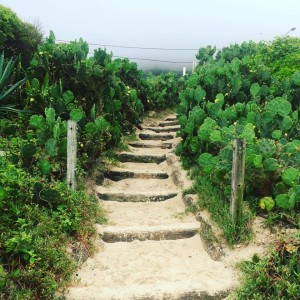 by Priscila Mateini
by Priscila Mateini
“We don’t grow when things are easy; we grow when we face challenges” – Joyce Meyer
 I had set some plans at the beginning of year 2015, and as the year progressed, that plan faced three levels of difficulties. The first one was quite easy – I had to adapt some materials for my son’s school – and I successfully overcame it. Then, towards the middle of the year, the second challenge that I had to deal with was working with the schedule routine of my new school. A new group of special needs students there had never had a mediator in the classroom before, so I was in charge of their adjustment and adapting the curriculum, too. Finally, the last difficulty resulted in the biggest and most important of the changes and took my life in a completely different direction: I was invited to take part in an MA project to study the demands of special needs teachers in public education. It has been extremely tough, but I have not given up.
I had set some plans at the beginning of year 2015, and as the year progressed, that plan faced three levels of difficulties. The first one was quite easy – I had to adapt some materials for my son’s school – and I successfully overcame it. Then, towards the middle of the year, the second challenge that I had to deal with was working with the schedule routine of my new school. A new group of special needs students there had never had a mediator in the classroom before, so I was in charge of their adjustment and adapting the curriculum, too. Finally, the last difficulty resulted in the biggest and most important of the changes and took my life in a completely different direction: I was invited to take part in an MA project to study the demands of special needs teachers in public education. It has been extremely tough, but I have not given up.
At the beginning of the school year, I got a great group of students to teach. Even though they were a mixed group with a range of difficulties, we were able to establish a positive learning environment both in and outside our class. I can say that we were a very nice team. Naturally, I was very excited to teach them, but what I could not have imagined was that my life would soon turn upside down. In April, my daughter expressed her concern about my working too much and complained about my not spending time with her and my son. At first, I thought she was being childish, but then I realized that it was a warning for me to start working less. I changed my routine and decided to quit the institution where I was teaching at that moment. Instead, I chose to work close to home and focus on adapting material for special needs students. At the same time, I joined a group of researchers to study inclusive education for my MA project. That was the moment when my big challenges began.
The problem was that I had never before worked with so many people and schools in such a short period. I soon became aware that some schools completely lack support, mediators for Special Educational Needs (SEN), or even worse, a curriculum adapted specifically for SEN. This made me reflect a lot on how difficult it is to teach in a context which teachers are not prepared for. By that time, I had a handful of theories and case studies at my disposal, but I did not have the practice required to use them in class. At some point one of my research supervisors told me to feel free to quit, arguing that it was not the first time that someone left the project, but I said no. I was determined to stay until the end of the project. This project, as I thought then and keep believing until now, will help thousands of teachers in Brazil to work with and adapt materials for students with disabilities in an inclusive environment.
In my life, I have learned a lot from both bad and good experiences, which has enabled me to grow as a learner and as a teacher. Sharing those experiences with my special needs students has enormously helped me overcome fears of failure and has given me the strength to move on. Teaching children, adolescents, and adults with disabilities has opened my eyes to diversity and inclusive education, the ideas that I may otherwise would never have been able to see. Thanks to this turn of events in my life, I now take a firm stand on SEN.
Being a special needs teacher requires quite a lot from us – patience, competence, as well as continuous professional development. That is why I am constantly taking part in development courses and workshops. Although this training is not always focused specifically on SEN teaching contexts, we can still learn a lot, draw ideas, and get the most out of our experiences.
Teaching is not an easy job; what we do goes beyond what many people think. We spend countless sleepless nights planning lessons, thinking about our classes, working weekends and holidays to bring our students engaging, tailor-made materials that would engage them. Every single year a teacher faces challenges of all sorts, challenges that bring change into our routines and make us stronger and more hopeful for better days. At the end of the day, what really matters is that we have chosen this career because we love what we do, and it is those big challenges that fuel our willingness to put our whole hearts into it.

